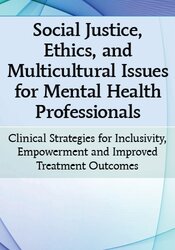How Historical Trauma Can Affect Your Clients

Historical trauma emphasizes that the impacts of traumatic events such as colonization, slavery, war, genocide, forced displacement, or systemic discrimination don't only affect individuals who directly experienced them, but can also shape the well-being, identity, and collective memory of future generations.
The key idea behind historical trauma is that it is not only an event that affects people at the time it occurs, but its effects are transmitted through cultural, social, and familial structures. These effects can manifest in various ways, such as through mental health issues, substance abuse, disrupted family dynamics, a sense of disconnection from cultural heritage, and patterns of chronic stress.
Healing from historical trauma often involves a process of community reconciliation, cultural revitalization, storytelling, acknowledgment of past wrongs, and trauma-informed care. Many communities who have experienced historical trauma work toward restoring cultural practices, language, and healing rituals as part of reclaiming their identity and well-being.
The key idea behind historical trauma is that it is not only an event that affects people at the time it occurs, but its effects are transmitted through cultural, social, and familial structures. These effects can manifest in various ways, such as through mental health issues, substance abuse, disrupted family dynamics, a sense of disconnection from cultural heritage, and patterns of chronic stress.
Examples of historical trauma include:
- The impact of colonization on Indigenous peoples, which involved violence, land dispossession, forced assimilation, and cultural erasure.
- The enslavement of Africans and its ongoing effects on descendants, including systemic racism and social inequality.
- The Holocaust and the long-lasting trauma experienced by Jewish communities.
- The forced relocation and internment of Japanese-Americans during World War II.
How historical trauma works:
Sotero (2006) presented a conceptual framework of historical trauma that consists of three distinct phases. Here are the three phases you might see in the therapy room with current clients, plus how it can also affect successive generations.Healing from historical trauma often involves a process of community reconciliation, cultural revitalization, storytelling, acknowledgment of past wrongs, and trauma-informed care. Many communities who have experienced historical trauma work toward restoring cultural practices, language, and healing rituals as part of reclaiming their identity and well-being.
Digital Seminar:
Social Justice, Ethics and Multicultural Issues for Mental Health Professionals
Social Justice, Ethics and Multicultural Issues for Mental Health Professionals

Without seeing your clients in their entirety, you could fail to recognize the unique challenges, stressors, barriers and burdens that can lie at the heart of their mental health issues. But even therapists can feel uncomfortable with conversations surrounding racial, cultural, sexual, economic and religious issues. And cultural stigmas and distrust born from societal power dynamics can cause some clients to hold back in therapy or leave treatment early.
This inspiring class will open your eyes to the struggles of disenfranchised or marginalized populations, and give you practical and innovative techniques so you can comfortably and successfully work with them in treatment. You’ll leave able to more capably assess clients, avoid cultural misunderstandings that can harm the therapeutic alliance, and gain the trust you need to achieve truly transformative results.
This inspiring class will open your eyes to the struggles of disenfranchised or marginalized populations, and give you practical and innovative techniques so you can comfortably and successfully work with them in treatment. You’ll leave able to more capably assess clients, avoid cultural misunderstandings that can harm the therapeutic alliance, and gain the trust you need to achieve truly transformative results.
Online Course:
Ethics & Cultural Competency Training Bundle
Ethics & Cultural Competency Training Bundle

Get more than 20 ethics and cultural competency best practices along with the latest information available. From safely navigating the “grey areas” of boundary issues and dual relationships to confidently creating breakthrough therapy experiences with clients different from yourself…you’ll end this course ready to handle any ethical challenges that come your way and fully prepared to work with your clients’ diverse backgrounds with skill, humility, and responsiveness. Whatever your clinical background, this course is perfect if you’re looking to stay current, avoid making critical errors, and meet your licensing requirements.
Meet the Expert:
Lisa Connors, PhD, LCPC, LPC, NCC is a licensed clinical professional counselor (MD), licensed professional counselor (PA), national certified counselor, board-certified coach, master addiction counselor, certified clinical trauma professional, and certified grief-informed professional. She is also a fellow in thanatology.
Learn more about her educational products, including upcoming live seminars, by clicking here.
Learn more about her educational products, including upcoming live seminars, by clicking here.





